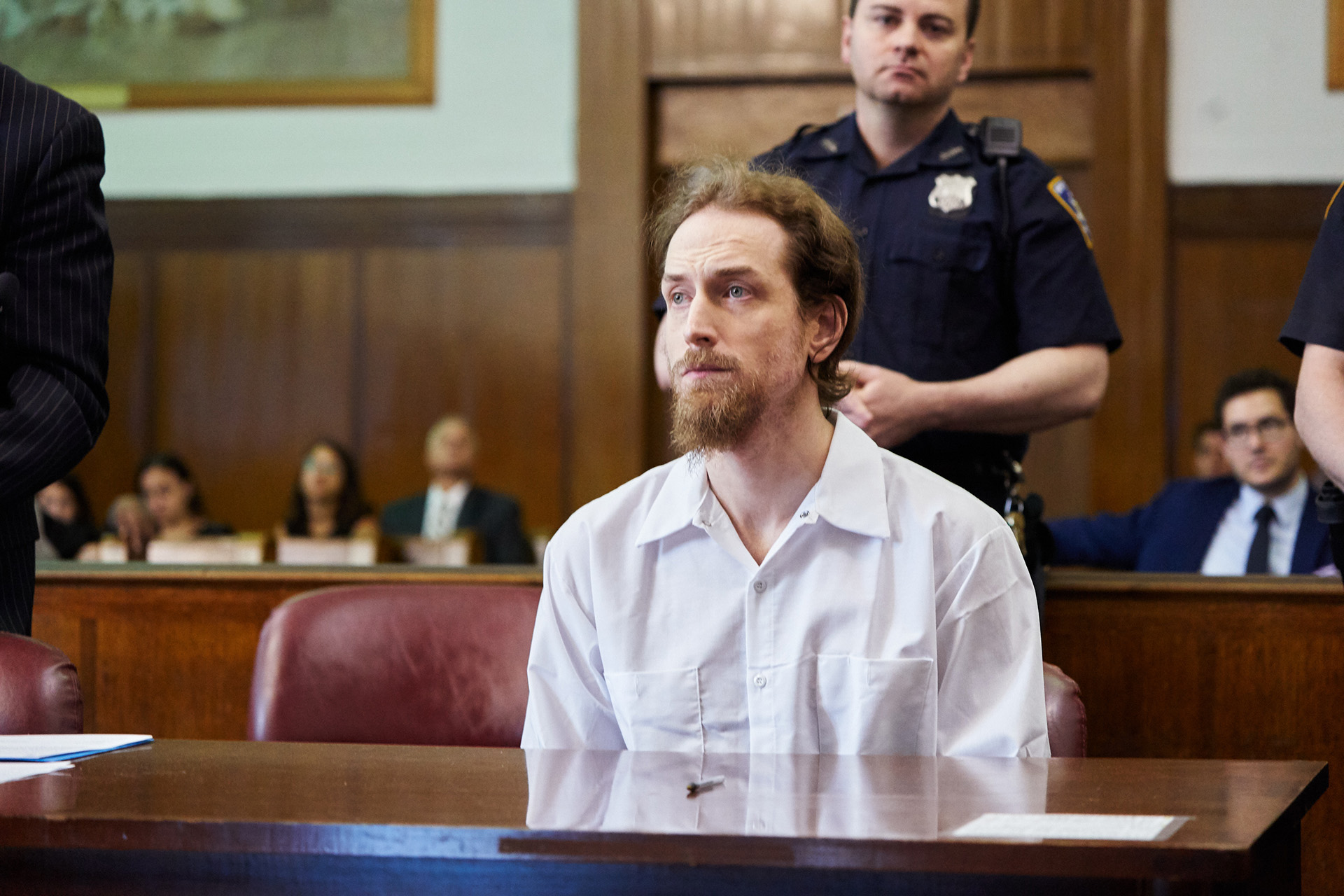Gilbert Sentenced To 30 Years To Life

Thomas Gilbert Jr. was sentenced on September 27 in the Manhattan courtroom of Justice Melissa Jackson to 30 years to life for murdering his father by firing a bullet into his forehead at pointblank range in the older man’s Beekman Place apartment on January 4, 2015.
Gilbert’s mother, Shelley, made what is called a victim’s impact statement, which served also as a plea for leniency for her son. She said her late husband Thomas Gilbert Sr. “was a joy to be with.”
As she talked about her late spouse, her son, known to all as Tommy, turned and stared at her, expressionless. She said the Gilberts were “a very happy family.” In the course of over four-and-a-half years of court appearances, Gilbert has never once smiled, or acknowledged his mother’s constant presence in the courtroom.
Shelley Gilbert asked Jackson to “keep what is left of our family together” by allowing Gilbert to serve his time near New York, and receive treatment she said he desperately needed for his mental illness.
Prosecuting attorney Greg Ortner told the court that those who commit crimes are frequently “young people who have made rash, impulsive decisions. Not so this defendant. He wanted his father dead.” He described Gilbert’s planning, over a long period, the murder of his father. “He believes the rules do not apply to him.”
He asked for the maximum sentence for murder in the second degree, 25 years to life, as well as an additional seven-year sentence for the crime of criminal possession of a weapon. He said the defendant had never shown a sign of remorse.
Arnold Levine, Gilbert’s attorney, asked for a lesser sentence. He said that a sentence of 15 years to life would serve the same purpose, and that in any event, a parole board would never release anyone convicted of the same crimes after only having served the minimum. Levine criticized the prosecution’s opposition to the mental incompetence argument he was making.
Three or four times, as his attorney was speaking, Tommy Gilbert said, “Objection,” something he had done throughout the trial.
Gilbert then spoke. Before speaking, he asked the court officers to uncuff him. They allowed one hand to be free so that Gilbert could refer to several pages of notes he had prepared. Most of what he said seemed fall under what Levine has previously called his client’s legal “mumbo-jumbo” requests for dismissal of the case based on the Constitution, or on federal or state criminal procedure laws. It appeared at times, as he spoke, that he was unaware that the trial was over.
He never mentioned his father, using the word “remorse” once in a detached manner. After Gilbert indicated he was finished speaking, officers re-cuffed his free hand.
Then, Jackson spoke. “You were not insane then, and you are not insane now,” she said. “You planned to kill. You knew exactly what you were doing.” He had acted, she said, “in such a cold and callous way.”
Jackson sentenced him to the maximum on the murder charge, then tacked on a five-year sentence on the weapons possession charges.
She said that it was her hope that in prison, he begins to accept treatment for mental health issues and take the drugs he is prescribed. “If you had taken your medication, perhaps you would not be here today.”
As he was led away, Gilbert looked back at those in the courtroom, expressionless, as he had been throughout the trial.
t.e@indyeastend.com



